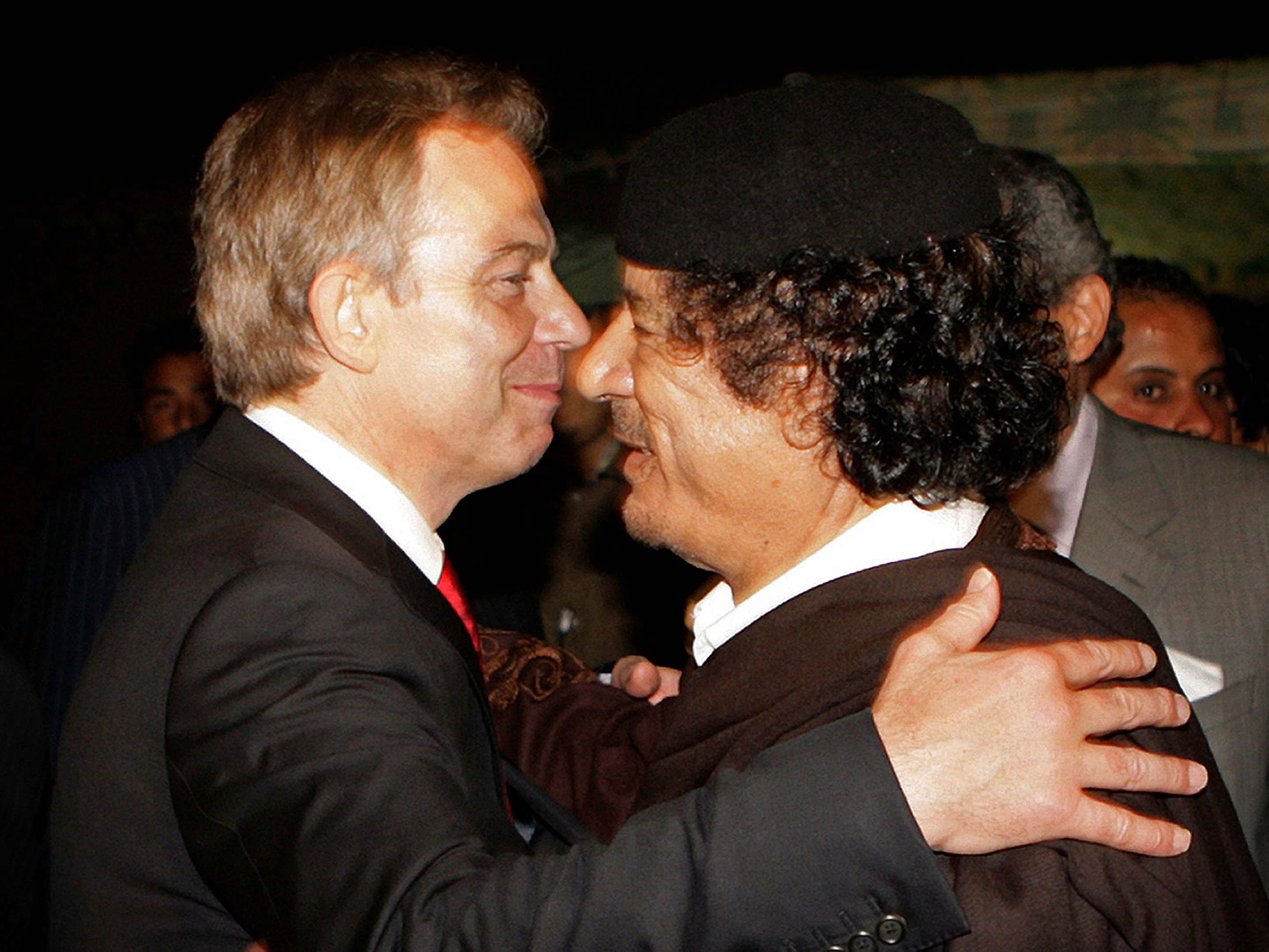Your support helps us to tell the story
From reproductive rights to climate change to Big Tech, The Independent is on the ground when the story is developing. Whether it's investigating the financials of Elon Musk's pro-Trump PAC or producing our latest documentary, 'The A Word', which shines a light on the American women fighting for reproductive rights, we know how important it is to parse out the facts from the messaging.
At such a critical moment in US history, we need reporters on the ground. Your donation allows us to keep sending journalists to speak to both sides of the story.
The Independent is trusted by Americans across the entire political spectrum. And unlike many other quality news outlets, we choose not to lock Americans out of our reporting and analysis with paywalls. We believe quality journalism should be available to everyone, paid for by those who can afford it.
Your support makes all the difference.Tony Blair got David Cameron’s permission for a series of 2011 phone calls to Colonel Gaddafi warning him to leave Libya before bombing started, the former prime minister has said.
The phone calls, revealed in an upcoming biography of Mr Cameron, took place within a 24 hour period and were aimed at getting the then Libyan dictator to “a safe place”.
Mr Blair told a hearing of the Foreign Affairs Select Committee that he had contacted Mr Cameron and the US State Department ahead of making contact with the Libyan dictator.
The former prime minister however denied he had tried to “save” Mr Gaddafi and that his concern was for the peaceful transition of Libya away from his regime.
“It’s been presented as if I was trying to save Gaddafi. I wasn’t trying to ‘save Gaddafi’,” he told MPs on the House of Commons Foreign Affairs Committee.
“My concern was not for his safety, it was to get him out of this situation.”
Mr Blair said “two or three” phone calls had been made and that they all included roughly the same message. Mr Gaddafi ultimately refused to leave the country and his regime was overthrown rebels with the help of western war planes.
The former prime minister said the phone calls were his idea and that he had contacted Mr Gaddafi as “a concerned private citizen’. Mr Blair also confirmed he had cleared the phone calls with the US state department.
The phone calls were originally revealed in Cameron at 10 by Sir Anthony Seldon, a new biography of the PM.
The former Labour leader’s time as prime minister was characterised by rapprochement with the Gaddafi regime and negotiations that led to the dictator giving up his chemical weapons.
The Libyan dictator was offered the support of Western oil companies to help extract its natural resources, in exchange for giving up its weapons of mass destruction and renouncing terrorism.
“I had the hope, probably misplaced, that he would engage in political and economic reform,” Mr Blair said.
The former prime minister defended his record, arguing that those weapons might have fallen into the hands of Islamist militants if they had not been scrapped. He said he had no business interests in Libya.
Mr Blair also said he had no criticism of Mr Cameron’s intervention in Libya and argued that though the country was in “chaos” the situation could arguably have been worse had intervention not gone ahead.

“I can tell you today Libya is a real security problem but I don’t know you can make the judgement about what would have happened if we hadn’t intervened,” he said.
“You can look at Syria today where we didn’t intervene and say it’s been even worse.”
The Foreign Affairs Select Committee is currently conducting an inquiry into the British Government’s policy in Libya, including the 2011 intervention. Mr Blair was giving evidence to this inquiry.

Join our commenting forum
Join thought-provoking conversations, follow other Independent readers and see their replies
Comments